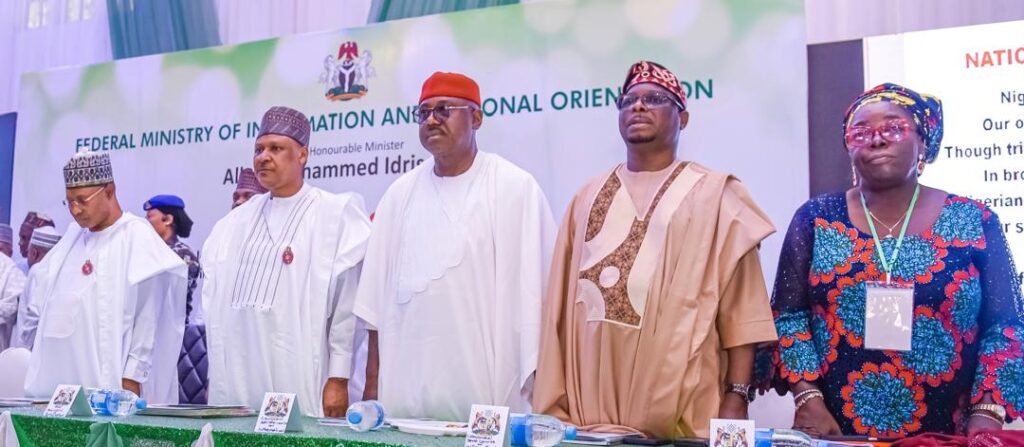The Federal Government has called on information managers to leverage the use of technology to enhance the speed, accuracy, and reach of information dissemination.
The Minister of Information and National Orientation, Alhaji Mohammed Idris, at the 48th National Council of Information and National Orientation, held in Kaduna on Friday, also stated that gendering public debate for policy refinement and alignment with public aspirations is a necessary component of promoting public participation in the decision-making process.
The minister in a statement by his special assistant (media) Rabiu Ibrahim, told information managers that ensuring that every ethnic group, language, and religion in Nigeria is heard and included in the governance process, requires deliberate efforts.
According to him, “the essence of governance lies in its ability to connect, communicate, and inspire collective action, hence information management is not merely a tool of administration but the lifeblood of democracy and development.”
He appraised the importance of the ministries of information at both national and state levels, adding that they serve as the bridge between government policies and the citizens they are designed to benefit, “thereby fostering transparency, accountability, and trust, which are essential pillars of any thriving democracy.
“The Ministry of Information plays a critical role in public sensitisation. Through this institution, and the platforms associated with it, governments are able to educate citizens on policies, programmes, and initiatives.
“They also serve as vital platforms for addressing misinformation, which, if left unchecked, can erode public trust and undermine collective progress.
“In an era where information is both a tool and a weapon, having a dedicated body to manage its dissemination is indispensable.”
Alhaji Idris stated that in every democracy, the strength of governance is deeply rooted in its ability to reflect the will and aspirations of the people.
“Public policies, while crafted with the best intentions, must continuously evolve to meet the dynamic needs and expectations of the citizens they serve. It is within this context that public debate plays a pivotal role,” he added.
The minister said that the ongoing debate on the tax reform bills before the National Assembly, are necessary in policy formulation and implementation.
He stated that such debate will foster a transparent exchange of ideas, where citizens, civil society organisations, and other stakeholders can voice their opinions, and provide constructive feedback on the reform proposal of the government.
The minister also challenged the information managers in countering misinformation and fake news, describing is as critical in information management.
He called for the provision of the necessary skills for information officers to employ fact-checking mechanisms, as well as seek collaboration with media organisations, and enhance public awareness campaigns to combat misinformation.
“In an era where fake news, propaganda, and biased reporting can significantly influence public opinion and decision-making, media literacy fosters critical thinking.
“It helps individuals analyse the intent behind media messages, understand the context in which they are presented, and assess their accuracy and relevance,” he stated.















